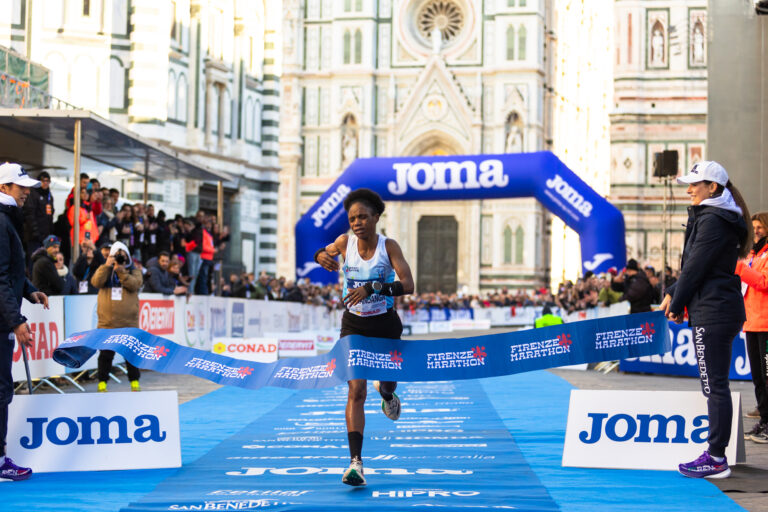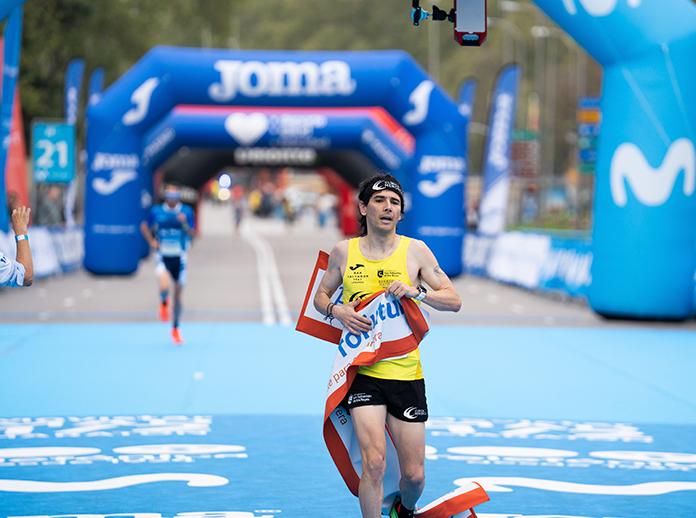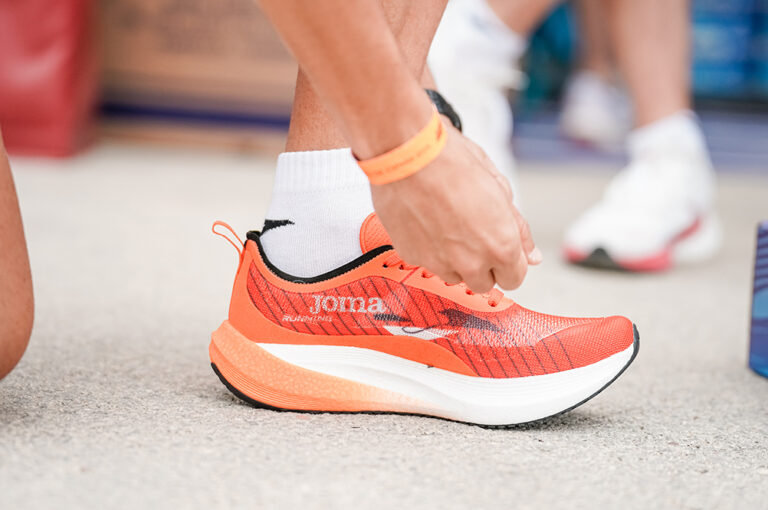If you are thinking about running your first half marathon and need to know how to prepare, at Joma, as experts in sports, we are going to detail it point by point.
The half marathon is becoming increasingly popular among experienced runners who have set themselves the goal of progressing and increasing the distance. The reason is that, despite requiring great physical effort, it is more accessible than a full marathon. Although not everyone is prepared to face it, that’s why we’re going to explain all the key points to you now.
To successfully complete the 13.1 miles of a half marathon, it is essential to plan and establish specific goals, and to have previously overcome shorter distance races such as the 5k and 10k. Going into detail, we will give you a series of tips to help you conquer each kilometer.
How long does it take to prepare for a half marathon?
The most important thing to keep in mind is that preparation for a half marathon depends on the level you have previously. It must be constant and progressive, that is, not to start very strong from the beginning or accumulate training time, as that will lead to injuries and more fatigue. You should increase the volume and intensity in training week after week. This gradual approach will allow you to enjoy a pleasant experience without injuries.

| If you are a beginner | If you have experience in 5K or 10K | If you have already run a half marathon before |
|
|
|
Important! Keep in mind that it is always necessary to respect the rest time to ensure a good recovery after each session.
Don’t forget to have the appropriate technical equipment
1. Runing shoes
Running shoes for a half marathon should be comfortable, lightweight, and suitable for your type of foot strike; this will allow you to run with less effort. Another important aspect is cushioning to reduce the risk of injuries. And for more experienced runners, a good option to improve performance is shoes with a carbon plate.
2. Technical and breathable clothing
T-shirts, shorts, and tights are the technical materials you definitely need to face a race. And it is essential that this clothing is made of lightweight and breathable fabrics, with technology capable of wicking away sweat and maintaining the body at a constant temperature. In cold climates, you can wear long sleeves and gloves.
3. Accessories
One of the accessories that should be part of the equipment for a half marathon are seamless sports socks to prevent blisters. Arm bands to carry your mobile phone are also very useful. And to stay hydrated, other essential accessories are hydration vests and belts. In them, you can carry your water, gels, and energy bars.
How should nutrition and hydration be?
As in any other running test, it is essential to consume enough calories to meet the body’s energy needs. By following proper nutrition and hydration, you will avoid fatigue and improve performance.
- Before the race: 48-72 hours before, increase consumption of complex carbohydrates (pasta, rice, oats) to fill glycogen stores.
- During the race: hydrate with water, energy gels, and isotonic drinks to help maintain energy and hydration levels.
- After the race: replenish lost nutrients and fluids. Consume foods rich in proteins and carbohydrates to rebuild muscle tissues and restore energy levels. Also, drink plenty of fluids and rest properly during the day after the race.
And now for the most important advice… Enjoy the race! By following each tip, wearing the right gear, and, of course, letting your motivation guide you, you are more than ready to face your first half marathon.



